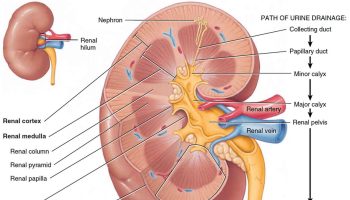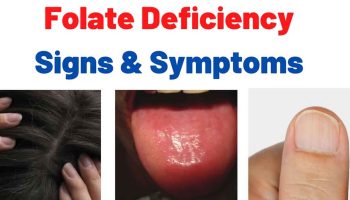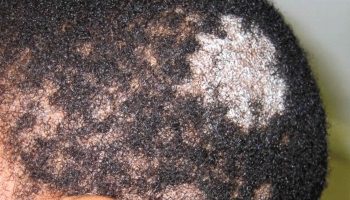Contents
What is bruxism
Bruxism is the medical term for the grinding of teeth and the clenching of jaws. If you have bruxism, you may unconsciously clench your teeth when you’re awake (awake bruxism) or clench or grind them during sleep (sleep bruxism). Sleep bruxism is considered a sleep-related movement disorder. People who clench or grind their teeth (brux) during sleep are more likely to have other sleep disorders, such as snoring and pauses in breathing (sleep apnea).
Bruxism doesn’t always cause symptoms but some people get facial pain, earaches and headaches, and it can wear down your teeth over time. Usually, though, it’s more bothersome to other family members because of the grinding sound.
Most people who grind their teeth and clench their jaw aren’t aware they’re doing it. It often happens during sleep or while concentrating or under stress.
Many children have bruxism (2 to 3 out of every 10 will grind or clench, experts say), but most outgrow it. Bruxism often happens during deep sleep phases or when people are under stress.
In some cases, nighttime grinding and clenching can wear down tooth enamel, chip teeth, increase temperature sensitivity, and cause severe facial pain and jaw problems, such as temporomandibular joint disease (TMJ). Most people who grind, however, don’t have temporomandibular joint disease (TMJ) problems unless their grinding and clenching happen a lot.
Mild bruxism may not require treatment. However, in some people, bruxism can be frequent and severe enough to lead to jaw disorders, headaches, damaged teeth and other problems.
See your dentist if:
- your teeth are worn, damaged or sensitive
- your jaw, face or ear is painful
- your partner says you make a grinding sound in your sleep
Your dentist will check your teeth and jaw for signs of teeth grinding.
You may need dental treatment if your teeth are worn through grinding to avoid developing further problems, such as infection or a dental abscess.
See your doctor if your teeth grinding is stress-related. They’ll be able to recommend ways to help manage your stress.
Bruxism causes
Experts aren’t always sure why bruxism happens, but it’s usually linked to other factors, such as stress, anxiety or sleep problems.
In some cases, people may grind because the top and bottom teeth aren’t aligned properly. Others do it as a response to pain, such as from an earache or teething (children). People might grind their teeth as a way to ease the pain, just as they might rub a sore muscle. Many kids outgrow these fairly common causes for grinding.
- Awake bruxism may be due to emotions such as anxiety, stress, anger, frustration or tension. Or it may be a coping strategy or a habit during deep concentration.
- Sleep bruxism may be a sleep-related chewing activity associated with arousals during sleep.
Stress and anxiety
Teeth grinding is most often caused by stress or anxiety and many people aren’t aware they do it. It often happens during sleep.
Medication
Teeth grinding can sometimes be a side effect of taking certain types of medication.
In particular, teeth grinding is sometimes linked to a type of antidepressant known as a selective serotonin reuptake inhibitor (SSRI). Examples of SSRIs include paroxetine, fluoxetine and sertraline.
Sleep disorders
If you snore or have a sleep disorder, such as obstructive sleep apnea (OSA), you’re more likely to grind your teeth while you sleep. Obstructive sleep apnea (OSA) interrupts your breathing while you sleep.
You’re also more likely to grind your teeth if you:
- talk or mumble while asleep
- behave violently while asleep, such as kicking out or punching
- have sleep paralysis (a temporary inability to move or speak while waking up or falling asleep)
- experience hallucinations (seeing or hearing things that aren’t real) while semi-conscious
Family members with bruxism
Sleep bruxism tends to occur in families. If you have bruxism, other members of your family also may have bruxism or a history of it.
Lifestyle factors
Other factors that can make you more likely to grind your teeth or make it worse include:
- drinking alcohol
- smoking
- using recreational drugs, such as ecstasy and cocaine
- having lots of caffeinated drinks, such as tea or coffee (six or more cups a day)
Other disorders
Bruxism can be associated with some mental health and medical disorders, such as Parkinson’s disease, dementia, gastroesophageal reflux disorder (GERD), epilepsy, night terrors, sleep-related disorders such as sleep apnea, and attention-deficit/hyperactivity disorder (ADHD).
Teeth grinding in children
Teeth grinding can also affect children. It tends to happen after their baby teeth or adult teeth first appear, but usually stops after the adult teeth are fully formed.
Stress — usually nervous tension or anger — is another cause. For instance, a child might worry about a test at school or a change in routine (a new sibling or a new teacher). Even arguing with parents and siblings can cause enough stress to prompt teeth grinding or jaw clenching.
Some kids who are hyperactive also have bruxism. And sometimes children with other medical conditions (such as cerebral palsy) or who take certain medicines can develop bruxism.
See your doctor if you’re concerned about your child’s teeth grinding, particularly if it’s affecting their sleep.
Bruxism Prevention
Stress reduction and anxiety management may reduce bruxism in people who are prone to the condition.
Complications of bruxism
In most cases, bruxism doesn’t cause serious complications. But severe bruxism may lead to:
- Damage to your teeth, restorations, crowns or jaw
- Receding gums
- Tension-type headaches
- Severe facial or jaw pain
- Disorders that occur in the temporomandibular joints (TMJs), located just in front of your ears, which may sound like clicking when you open and close your mouth
- Depression
- Eating disorders
- Insomnia
Bruxism symptoms
Symptoms of teeth grinding include:
- facial pain
- dull headache starting in the temples
- pain that feels like an earache, though it’s actually not a problem with your ear
- pain and stiffness in the jaw joint (temporomandibular joint) and surrounding muscles, which can lead to temporomandibular disorder (TMD)
- tired or tight jaw muscles, or a locked jaw that won’t open or close completely
- disrupted sleep (for you or your partner)
- teeth that are flattened, fractured, chipped or loose
- worn-down teeth, which can lead to increased sensitivity and even tooth loss
- broken teeth or fillings
- jaw, neck or face pain or soreness
- damage from chewing on the inside of your cheek
Facial pain and headaches often disappear when you stop grinding your teeth. Tooth damage usually only occurs in severe cases and may need treatment.
Diagnosing Bruxism
Lots of people who grind their teeth aren’t even aware of it, so it’s often spouses or parents who identify the problem.
If your bruxism seems to be related to major sleep issues, your doctor may recommend a sleep medicine specialist. A sleep medicine specialist can conduct more tests, such as a sleep study that will assess for episodes of teeth grinding and determine if you have sleep apnea or other sleep disorders.
If anxiety or other psychological issues seem related to your teeth grinding, you may be referred to a licensed therapist or counselor.
Some signs to watch for:
- teeth grinding or clenching noises when sleeping, which may be loud enough to wake up your sleep partner
- complaints of a sore jaw or face after waking up in the morning
- pain with chewing
If you think you or your partner is grinding his or her teeth, visit the dentist, who will examine the teeth for chipped enamel and unusual wear and tear, and spray air and water on the teeth to check for unusual sensitivity.
If damage is found, the dentist may ask you a few questions, such as:
- How do you feel before bed?
- Are you worried about anything at home or work?
- Are you angry with someone?
- What do you do before bed?
The exam will help the dentist see whether the cause is anatomical (misaligned teeth) or psychological (stress), and come up with an effective treatment plan.
Bruxism treatment
There are a number of treatments for teeth grinding.
In many cases, treatment isn’t necessary. Many kids outgrow bruxism without treatment, and many adults don’t grind or clench their teeth badly enough to require therapy. However, if the problem is severe, options include certain dental approaches, therapies and medications to prevent more tooth damage and relieve jaw pain or discomfort.
These self-care tips may help relieve pain:
- Apply ice or wet heat to sore jaw muscles. Either can help.
- Avoid eating hard or dense foods like nuts, candies, and steak.
- Do not chew gum.
- Drink plenty of water every day.
- Get plenty of sleep.
- Learn physical therapy stretching exercises to help the muscles and joints on each side of your head get back to normal.
- Massage the muscles of your neck, shoulders, and face. Look for small, painful nodules called trigger points that can cause pain throughout your head and face.
- Relax your face and jaw muscles throughout the day. The goal is to make facial relaxation a habit.
- Try to reduce your daily stress and learn relaxation techniques.
Talk with your dentist or doctor to find out which option may work best for you.
Using a mouth guard or mouth splint reduces the sensation of clenching or grinding your teeth. They also help reduce pain and prevent tooth wear, as well as protecting against further damage.
Other treatments include muscle-relaxation exercises and sleep hygiene.
If you have stress or anxiety, cognitive behavioral therapy (CBT) may be recommended.
How cognitive behavioral therapy (CBT) works
Cognitive behavioral therapy (CBT) is based on the concept that your thoughts, feelings, physical sensations and actions are interconnected, and that negative thoughts and feelings can trap you in a vicious cycle.
Cognitive behavioral therapy (CBT) aims to help you deal with overwhelming problems in a more positive way by breaking them down into smaller parts. You’re shown how to change these negative patterns to improve the way you feel.
Unlike some other talking treatments, CBT deals with your current problems, rather than focusing on issues from your past. It looks for practical ways to improve your state of mind on a daily basis.
What happens during CBT sessions
If CBT is recommended, you’ll usually have a session with a therapist once a week or once every two weeks. The course of treatment usually lasts for between five and 20 sessions, with each session lasting 30-60 minutes.
During the sessions, you’ll work with your therapist to break down your problems into their separate parts – such as your thoughts, physical feelings and actions.
You and your therapist will analyze these areas to work out if they’re unrealistic or unhelpful and to determine the effect they have on each other and on you. Your therapist will then be able to help you work out how to change unhelpful thoughts and behaviors.
After working out what you can change, your therapist will ask you to practise these changes in your daily life and you’ll discuss how you got on during the next session.
The eventual aim of therapy is to teach you to apply the skills you’ve learnt during treatment to your daily life.
This should help you manage your problems and stop them having a negative impact on your life – even after your course of treatment finishes.
Pros and cons of CBT
Cognitive behavioral therapy (CBT) can be as effective as medication in treating some mental health problems, but it may not be successful or suitable for everyone.
Some of the advantages of CBT include:
- it may be helpful in cases where medication alone hasn’t worked
- it can be completed in a relatively short period of time compared to other talking therapies
- the highly structured nature of CBT means it can be provided in different formats, including in groups, self-help books and computer programs
- it teaches you useful and practical strategies that can be used in everyday life – even after the treatment has finished
Some of the disadvantages of CBT to consider include:
- you need to commit yourself to the process to get the most from it – a therapist can help and advise you, but they need your co-operation
- attending regular CBT sessions and carrying out any extra work between sessions can take up a lot of your time
- it may not be suitable for people with more complex mental health needs or learning difficulties – as it requires structured sessions
- it involves confronting your emotions and anxieties – you may experience initial periods where you’re anxious or emotionally uncomfortable
- it focuses on the individual’s capacity to change themselves (their thoughts, feelings and behaviours) – which doesn’t address any wider problems in
- systems or families that often have a significant impact on an individual’s health and wellbeing
Some critics also argue that because CBT only addresses current problems and focuses on specific issues, it doesn’t address the possible underlying causes of mental health conditions, such as an unhappy childhood.
Bruxism mouth guard and mouth splints
To prevent damage to your teeth, mouth guards or appliances (splints) are often used to treat teeth grinding, clenching, and TMJ disorders. A splint may help protect your teeth from the pressure of clenching.
Mouth guards and splints even out the pressure across your jaw and create a physical barrier between your upper and lower teeth to protect them from further damage. They can also reduce any grinding noises you make at night.
Mouth guards are similar to those used in sports such as boxing or rugby. They’re rubber or plastic and can be made by your dentist to fit your mouth. You can also buy a mouth guard from your local pharmacist, but it’s unlikely to fit as well as a custom-made one.
A mouth splint is made from harder plastic and fits precisely over your upper or lower teeth. They’re no more effective than mouth guards in reducing the symptoms of teeth grinding. However, they’re more expensive as they last for several years, whereas mouth guards usually only last for less than a year.
You’ll usually have to pay for a custom-made dental appliance. And be more expensive, depending on the type of appliance recommended and how it’s made. Ask your dentist about the options available to you and how much they cost.
A well-fitting splint should help reduce clenching. However, some people find that the symptoms go away as long as they use the splint, but pain returns when they stop. The splint may also not work as well over time.
There are many types of splints. Some fit over the top teeth, some on the bottom. They may be designed to keep your jaw in a more relaxed position or provide some other function. If 1 type doesn’t work, another may.
A splint called the NTI-tss fits over just the front teeth. The idea is to keep all of your back teeth (molars) completely separated. This is based on the theory that most clenching is done on these back teeth. With the NTI, the only contact is between the splint and a bottom front tooth.
After splint therapy, orthodontic adjustment of the bite pattern may help some people. Surgery should be considered a last resort.
Treating stress and anxiety
If the underlying cause of your teeth grinding is stress or anxiety, psychological treatments, such as cognitive behavioural therapy (CBT), may help.
Behavior change. Once you discover that you have bruxism, you may be able to change the behavior by practicing proper mouth and jaw position. Ask your dentist to show you the best position for your mouth and jaw.
Biofeedback. If you’re having a hard time changing your habits, you may benefit from biofeedback, a method that uses monitoring procedures and equipment to teach you to control muscle activity in your jaw.
If your teeth grinding is stress-related, it’s important to try to relax and get a good night’s sleep. There are a number of things you can try to help you wind down before you go to bed, including:
- yoga
- deep breathing
- massage
- reading
- having a bath
- listening to music.
Bruxism cure
Habit-reversal techniques are designed to break your teeth grinding habit. However, there’s no scientific evidence to suggest that using habit-reversal techniques will cure teeth grinding.
If you’re awake when you grind your teeth you might find it useful to record how often you grind your teeth each day. You can then work out when you’re more likely to do it and why – for example, when you’re concentrating or stressed.
If you’re aware of your habit it will be easier to break. To break the habit, you could train yourself to relax your jaw when you feel yourself grinding or clenching. For example, you could open your jaw slightly or gently place your tongue between your upper and lower teeth.
Habit-reversal techniques may be used by a specially trained therapist, or you can try them yourself using a computer programme or self-help book. Your doctor will be able to advise you.
Treating and preventing dental problems
You should have regular dental check-ups so that any problems caused by your teeth grinding are treated as soon as possible to prevent further damage.
Dental problems, such as misaligned, cracked, crooked or missing teeth, can usually be treated with reconstructive dental treatments, such as false teeth, overlays and crowns.
These treatments can sometimes reshape the chewing surface of your teeth and stop you grinding.
Medication
Medication isn’t usually used to treat teeth grinding. But non-steroidal anti-inflammatory drugs (NSAIDs), such as ibuprofen, may help relieve any pain or swelling around your jaw caused by grinding.
In some cases, your doctor may suggest taking a muscle relaxant before you go to bed to help relieve your symptoms, for a short period of time.
If your teeth grinding is a side effect of taking antidepressant medication, your doctor may suggest changing your medication. Never stop taking medication that’s been prescribed for you without consulting your doctor first.
Botox injections. Injections of Botox, a form of botulinum toxin, may help some people with severe bruxism who don’t respond to other treatments.
Medication for anxiety or stress. Your doctor may recommend short-term use of antidepressants or anti-anxiety medications to help you deal with stress or other emotional issues that may be causing your bruxism.
Treating associated disorders
Treatment for associated disorders may include:
- Medications. If you develop bruxism as a side effect of a drug, your doctor may change your medication or prescribe a different one.
- Sleep-related disorders. Addressing sleep-related disorders such as sleep apnea may improve sleep bruxism.
- Medical conditions. If an underlying medical condition, such as gastroesophageal reflux disease (GERD), is identified as the cause, treating this condition may improve bruxism.
How to stop bruxism – Self-help
To help prevent teeth grinding:
- Cut back on alcohol because it can make teeth grinding while you’re asleep worse
- Give up smoking
- Avoid using recreational drugs, such as ecstasy and cocaine
- Reduce stress. Listening to music, taking a warm bath or exercising can help you relax and may reduce your risk of developing bruxism.
- Avoid stimulating substances in the evening. Don’t drink caffeinated coffee or caffeinated tea after dinner and avoid alcohol during the evening, as they may worsen bruxism.
- Practice good sleep habits. Getting a good night’s sleep, which may include treatment for sleep problems, may help reduce bruxism.
- Talk to your sleep partner. If you have a sleeping partner, ask him or her to be aware of any grinding or clicking sounds that you might make while sleeping so you can report this to your dentist or doctor.
- Schedule regular dental exams. Dental exams are the best way to identify bruxism. Your dentist can spot signs of bruxism in your mouth and jaw during regular visits and exams.
Because stress could be the cause of bruxism, you might try changing your bedtime routine so you’re relaxed by the time you say goodnight. Take a warm bath or shower, listen to slow music, or read a good book. It just might help you say bye-bye to bruxism!
How to get to sleep
If you have difficulty falling asleep, a regular bedtime routine will help you wind down and prepare for bed.
Few people manage to stick to strict bedtime routines. This isn’t much of a problem for most people, but for insomniacs, irregular sleeping hours are unhelpful.
Your routine depends on what works for you, but the most important thing is working out a routine and sticking to it.
Sleep at regular times
First of all, keep regular sleeping hours. This programmes the brain and internal body clock to get used to a set routine.
Most adults need between six and nine hours of sleep every night. By working out what time you need to wake up, you can set a regular bedtime schedule.
Make sure you wind down
Winding down is a critical stage in preparing for bed. There are lots of ways to relax:
- A warm bath (not hot) will help your body reach a temperature that’s ideal for rest.
- Writing “to do” lists for the next day can organize your thoughts and clear your mind of any distractions.
- Relaxation exercises, such as light yoga stretches, help to relax the muscles. Don’t exercise vigorously, as it will have the opposite effect.
- Relaxation music work by using a carefully narrated script, gentle hypnotic music and sound effects to relax you.
- Reading a book or listening to the radio relaxes the mind by distracting it.
Make your bedroom sleep-friendly
Your bedroom should be a relaxing environment. Experts claim there’s a strong association in people’s minds between sleep and the bedroom.
However, certain things weaken that association, such as TVs and other electronic gadgets, light, noise, and a bad mattress or bed.
Keep your bedroom just for sleep and sex (or masturbation). Unlike most vigorous physical activity, sex makes us sleepy. This has evolved in humans over thousands of years.
Your bedroom ideally needs to be dark, quiet, tidy and be kept at a temperature of between 18° C and 24° C.
Fit some thick curtains if you don’t have any. If you’re disturbed by noise, consider investing in double glazing or, for a cheaper option, use earplugs.
Keep a sleep diary
It can be a good idea to keep a sleep diary (Figure 1). It may uncover lifestyle habits or daily activities that contribute to your sleeplessness.
If you see your doctor or a sleep expert they will probably ask you to keep a sleep diary to help them diagnose your sleep problems. So taking one you’ve already done with you could save time.
A sleep diary can also reveal underlying conditions that explain your insomnia, such as stress or medication.
Figure 1. Daily sleep diary
Helping Kids With Bruxism
Most kids outgrow bruxism, but a combination of parental observation and dental visits can help keep the problem in check until they do.
In cases where the grinding and clenching make a child’s face and jaw sore or damage the teeth, dentists may prescribe a special night guard. Molded to a child’s teeth, the night guard is similar to the protective mouthpieces worn by athletes. Though a mouthpiece can take some getting used to, positive results happen quickly.
Whether the cause is physical or psychological, kids might be able to control bruxism by relaxing before bedtime — for example, by taking a warm bath or shower, listening to a few minutes of soothing music, or reading a book.
For bruxism that’s caused by stress, ask about what’s upsetting your child and find a way to help. For example, a kid who is worried about being away from home for a first camping trip might need reassurance that mom or dad will be nearby if needed.
If the issue is more complicated, such as moving to a new town, discuss your child’s concerns and try to ease any fears. If you’re concerned, talk to your doctor.
In rare cases, basic stress relievers aren’t enough to stop bruxism. If your child has trouble sleeping or is acting differently than usual, your dentist or doctor may suggest further evaluation. This can help find the cause of the stress and a proper course of treatment.
How Long Does Bruxism Last?
Most kids stop grinding when they lose their baby teeth. However, a few kids do continue to grind into adolescence. And if the bruxism is caused by stress, it will continue until the stress eases.
Preventing Bruxism
Because some bruxism is a child’s natural reaction to growth and development, most cases can’t be prevented. Stress-induced bruxism can be avoided, though. So talk with kids regularly about their feelings and help them deal with stress. Taking kids for routine dental visits can help find and treat bruxism.






